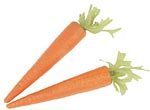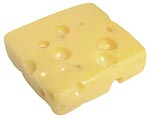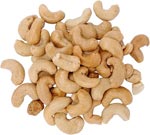
Brushing and flossing are vital to keeping your teeth healthy, but what you eat and drink in between your daily cleaning rituals also plays an important role in your oral health.
Plaque – an invisible, sticky layer of bacteria – regularly coats your teeth. When the starches and sugars present in many foods come into contact with this bacteria, acid is produced. This acid breaks down the enamel that protects the outside of your teeth, and over time can cause tooth decay.
If you choose your foods wisely, you can decrease the amount of acid that attacks your teeth. Here are some diet tips for keeping your teeth healthy:
 Limit foods and drinks that are high in sugar, like cookies, candies and sodas – remember even unsweetened fruit juices are high in sugar.
Limit foods and drinks that are high in sugar, like cookies, candies and sodas – remember even unsweetened fruit juices are high in sugar.- Read packaging labels to find out how much sugar is included, and make educated choices in the products you purchase.
- Limit dried fruits, which are sticky and cling to the teeth – instead, eat fresh fruit, especially apples, which serve as natural tooth cleaners.
- Avoid snacks between meals – but if you must snack, replace sugary treats with crackers, cheese, yogurt, nuts, and celery or carrot sticks, which produce less acid.
- If you do drink sugary liquids (soda, sports drinks, juices), avoid sipping slowly over a long period of time as this extends the period that acid attacks your teeth.
 If you’re a regular coffee or tea drinker, reduce or eliminate added sugar.
If you’re a regular coffee or tea drinker, reduce or eliminate added sugar.- If your children snack at school, be sure they have access to healthy snacks (veggies, fresh fruits, cheese) instead of packaged foods that are high in sugar.
- If you occasionally treat yourself to a sugary snack, brush your teeth afterwards to reduce the acid effect – if you aren’t near a toothbrush, rinse with water or chew a piece of sugarless gum to stimulate saliva, which helps clean your teeth

- Vegetables
- Meat, poultry, fish, eggs, beans, nuts
- Breads, cereals, rice, pasta
- Milk, yogurt, cheese
- Fruits